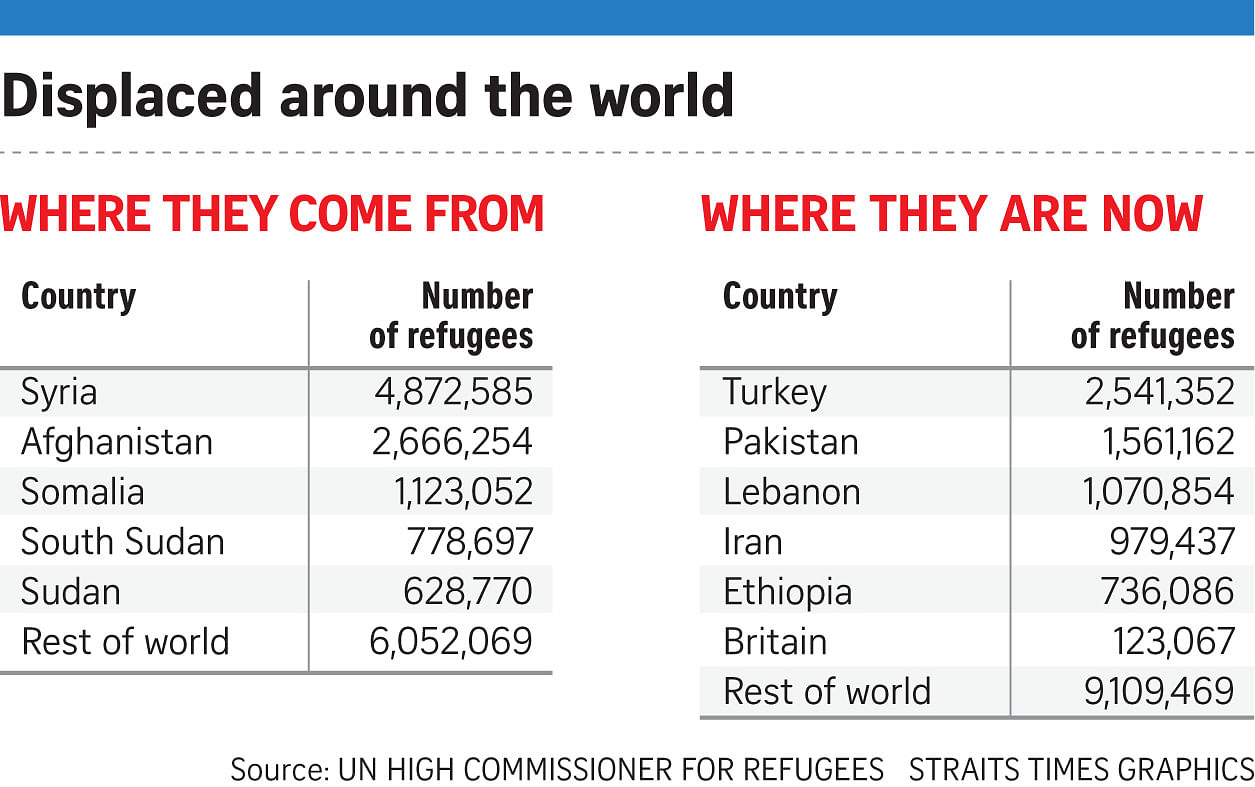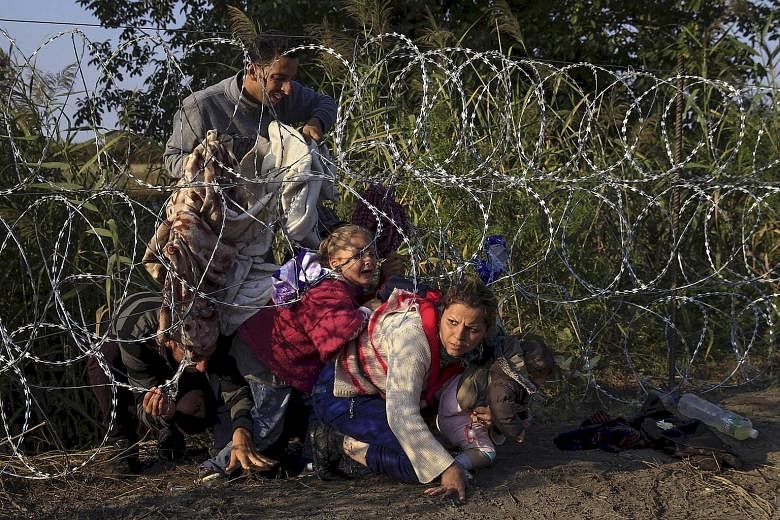GENEVA • A record 65.3 million people were uprooted worldwide last year, many of them fleeing wars only to face walls, tougher laws and xenophobia as they reached borders, the United Nations refugee agency UNHCR said yesterday.
The figure, which jumped from 59.5 million in 2014 and by 50 per cent in five years, means that one in every 113 people on the planet is now a refugee, asylum seeker or internally displaced in a home country.
The bulk of these people - nearly 41 million - were still living within their own countries. Never before had the United Nations documented so many "internally displaced persons", as they are officially defined.
But fighting in Syria, Afghanistan, Burundi and South Sudan had driven the latest exodus to other countries, taking the total number of refugees to 21.3 million, half of them children, the UNHCR said in its Global Trends report marking World Refugee Day. Around three million people were awaiting a decision on their asylum claims.
"The refugees and migrants crossing the Mediterranean and arriving on the shores of Europe - the message that they have carried is that if you don't solve problems, problems will come to you," UN High Commissioner for Refugees Filippo Grandi told a news briefing.

"It is painful that it has taken so long for people in the rich countries to understand that," he said. "We need action, political action to stop conflicts - that would be the most important prevention of refugee flows."
A record two million new asylum claims were lodged in industrialised countries last year, the UN report said.
Nearly 100,000 were children unaccompanied or separated from their families, a threefold rise from 2014 and a historic high.
Germany, where one in three applicants was Syrian, led with 441,900 claims, followed by the United States with 172,700, many of them fleeing gang- and drug-related violence in Mexico and Central America.
The report said developing regions still hosted 86 per cent of the world's refugees, led by Turkey with 2.5 million Syrians, followed by Pakistan and Lebanon.
Asylum seekers fleeing conflicts or persecution are increasingly confronted with walls or anti-foreigner sentiment, said Mr Grandi.
"The rise of xenophobia is, unfortunately, becoming a very defining feature of the environment in which we work," he said.
"Barriers are rising everywhere - and I am not just talking of walls. I am talking about legislative barriers that are coming up, including in countries in the industrialised world that have been for a long time bastions of principle in defending the fundamental rights linked to asylum," added Mr Grandi.
After Balkan countries closed their borders, Turkey and the European Union (EU) struck a deal in March to stem an influx that had brought a million refugees and migrants to Europe last year.
"The fact that that flow has stopped does not mean the problem of displacement has ended. It may have ended for some countries that don't have to deal with it any more, for now," said Mr Grandi.
Progress has lagged on a scheme to redistribute 160,000 asylum seekers from Greece and Italy to other EU states to alleviate pressure on the two front-line countries.
Only 2,406 people have been relocated, EU figures show.
Mr Grandi, asked about stalled relocation, said: "There is no Plan B for Europe. Europe will continue to receive people seeking asylum.
"Everybody has to share responsibility now."
The UNHCR figures excluded people displaced by earthquakes, floods and other natural disasters, which last year uprooted at least 19 million, said the Internal Displacement Monitoring Centre, a leading source of information on internally displaced people worldwide.
REUTERS, NEW YORK TIMES

